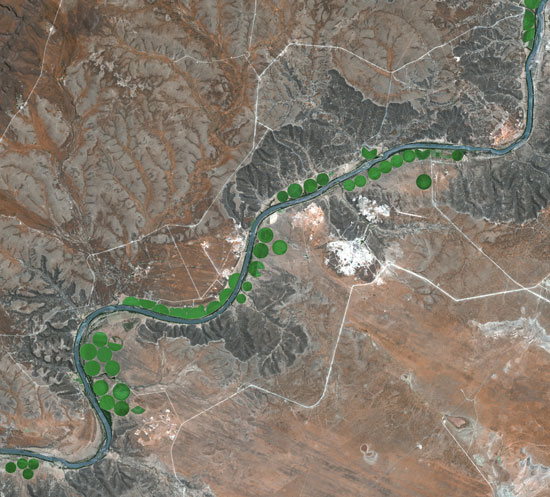
Airbus ‘Eyes’ to monitor key elements of preferential sectors in local economy

The space wing of Toulouse-based aircraft manufacturer, Airbus and the Namibia University of Science and Technology (NUST) agreed to collaborate in establishing a Virtual Space Data Centre in Windhoek to assist the country in monitoring and growing key elements of its economy.
The agreement signed between Airbus and NUST last week, is to establish a Virtual Space Data Centre, which, through imagery supplied by a constellation of Airbus satellites, will enable the creation of a geo-intelligence database for the Namibian government and other users working in a wide range of spheres including agriculture and food security, transport, infrastructure, environment, mapping and surveying.
Geo-intelligence is the exploitation and analysis of imagery and geospatial information to describe, assess, and visually depict physical features and geographically referenced activities on the Earth’s surface.
Head of Airbus Defence and Space for Africa, Middle East, France and UK, Jean-Marc Nasr, this week said Namibia is a key market for Airbus in sub-Sahara Africa.
“We see this initial project as the starting point for a broader relationship with our partners at the NUST and the Ministry of Higher Education, Training and Innovation, which will include other aerospace themes,” he added.
According to Nasr, the Namibian Virtual Space Data Centre will receive satellite imagery from Airbus’s earth observation satellite constellation comprising the SPOT 6, SPOT 7, Pléiades 1A and 1B optical satellites and the TerraSAR-X and TanDEM-X synthetic radar satellites.
“With their different characteristics but complementary capabilities, this combination of Airbus satellites is able to fulfil a wide range of needs,” he added.
NUST Vice Chancellor, Dr Tjama Tjivikua said that the Centre will find wide applications in Namibia in the fields of aviation, maritime and land transportation, urbanisation, mapping and surveying, human health, disaster management, food security and sustainable agriculture, environmental monitoring and natural resources management, amongst others.
“This data will be made available to government ministries and various entities,” he added.
Meanwhile, the government has delegated NUST to host the country’s Institute for Space Technology and mandated it to implement the Virtual Space Data Centre as part of its strategic plan for developing the country’s aerospace, geo-information, earth observation and spatial science capabilities.










































